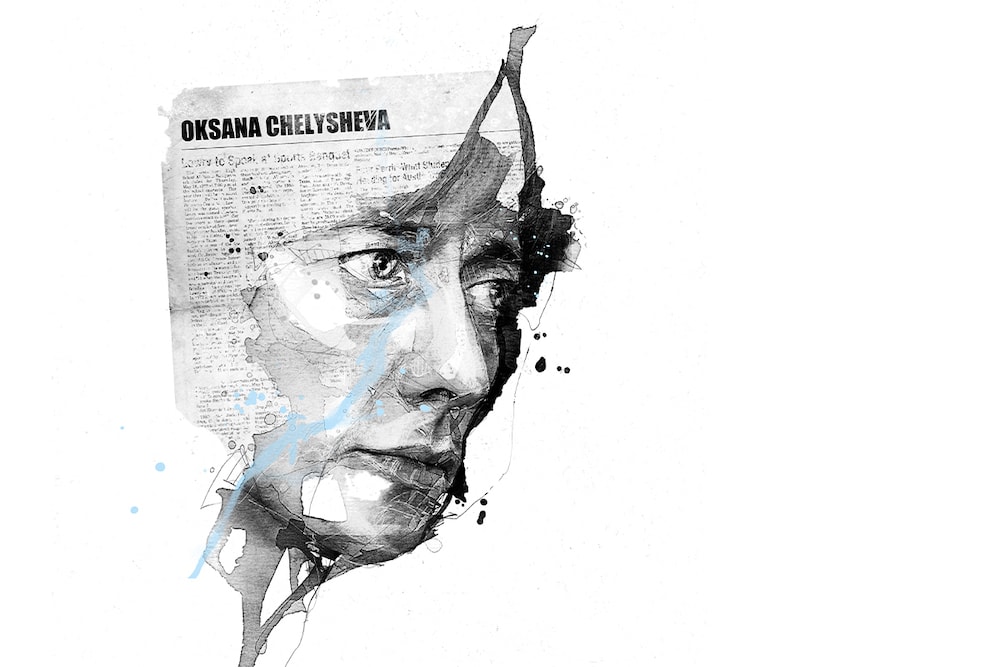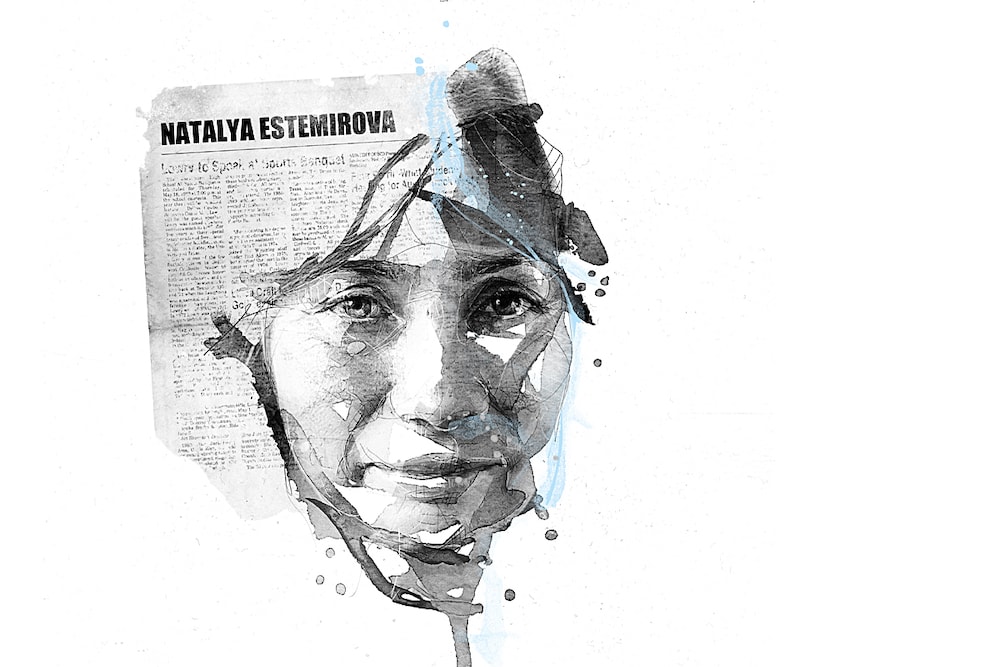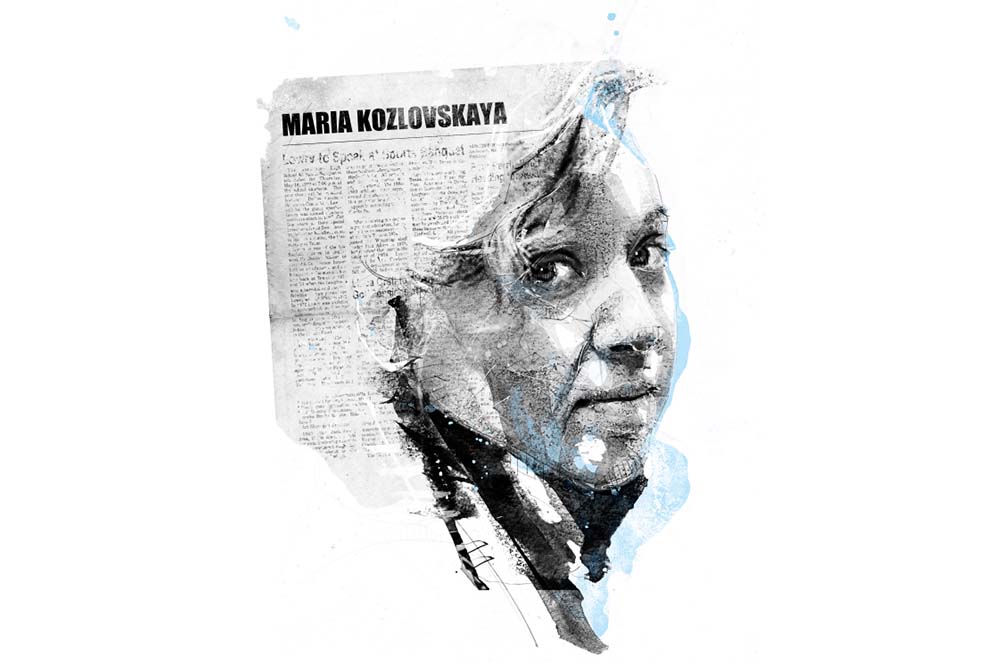Novelist, journalist and scathing critic of the Putin regime, Yulia Latynina endured almost a decade of persecution; in September 2017 she fled Russia in fear for her life.
“There is no security guarantee from Putin. The only security guarantee from Putin is if there's no Putin. Period.”
Yulia Latynina is a Russian journalist, TV presenter, radio show host and novelist. On 10 September 2017, she announced on Twitter that she had fled Russia in fear for her life. She did not reveal her new location. Her decision to leave her home country came after an arson attack on her car on 3 September 2017; it was the latest in a series of attacks and incidents of harassment that Latynina had been subjected to for almost a decade.
Although a prolific writer of detective novels and science fiction, Latynina is best known for her hard-hitting, opinionated, sometimes controversial journalism. She is extremely industrious. Latynina has published dozens of books since the early 1990s whilst – at the same time – developing an impressive media career covering economics and political corruption. She began her journalistic work in 1995, as an economics columnist for the newspaper Segodnya. Since then, she has also written for the Izvestiya daily, the magazine Expert, the monthly Sovershenno Secretno and the weekly Ezhenedelny Zhurnal. She was a columnist for the independent newspaper Novaya Gazeta and had a show on Ekho Moskvy Radio until both were closed in March 2022 as a result of Russia’s crackdown on independent media during the invasion of Ukraine.
The importance of Latynina’s work has been recognised at home and abroad, and she has been the recipient of numerous prizes: in 1998, she received the Alexander II Prize “for [a] great personal contribution to the cause of defending economic freedom in Russia;” in 1999, she was named Person of the Year by the Russian Biographical Institute for her contribution to economics journalism; in 2004, she was awarded the Gerd Bucerius Prize for Young Press of Eastern Europe; in 2007, she received the Maria Grazia Cutuli Prize for investigative journalism; and in 2008 she was given the Freedom Defenders Award by the US State Department.
Latynina’s journalism pulls no punches. An extract from her 2008 Moscow Times profile of President Putin demonstrates her forthright, sometimes scathing style:
“Who is Mr. Putin? Until 2003, he was a leader who could have made Russia a truly great country if he followed through on his liberal economic programme. But he had one weakness. As a former security services operative, machinations became his modus operandi for ruling the country… Whenever Putin believed he had a sworn enemy, that person was removed at the drop of a hat… As government corruption became increasingly worse, the picture presented on state television became increasingly rosy. While Putin’s elite vacationed at the posh French ski resort in Kurshavel, the Kremlin constantly warned Russia’s lumpen proletariat of the country’s mortal enemies in the West. As Nashi youth pelted the Estonian Embassy with stones, eggs and insults, Russian state-controlled television presented this as the resurgence of a ‘strong Russia.’ ‘Strong’ is the key word here. Any person who is incapable of making decisions in difficult situations has a great need to pretend to be strong. We have been told repeatedly that Putin rules the country with a ‘strong hand,’ but, in reality, his orders are routinely ignored. He once ordered the firing of a number of high-ranking Federal Security Service officers, but they all remained at their posts. Moreover, Putin’s subordinates continued to destroy companies even after he had personally told them to back off. In the end, what good has come of Putin’s presidency? Eight years of his authority produced swarms of enthusiastic toadies… And, of course, his friends became very rich.”
Anyone who openly criticises the Putin regime as corrupt – and worse, Putin himself as weak – is always going to attract the attention of Putin’s supporters, allies or the organised crime gangs that benefit from his regime. After writing the above Moscow Times profile, Latynina “became aware that the things that I had been saying were not welcomed by the Kremlin.”
Her 2017 account of the persecution that she has suffered during her career is disturbing, but it is also revealing for anyone who thinks that the Kremlin is in total control of the harassment, threats and murders of journalists that have taken place in Russia. The picture Latynina paints is consistent with the regime she describes in 2008: a weak regime that barely keeps a lid on its chaotic elements, where Putin’s wishes are sometimes ignored, where various ‘strong men’ brutalise the Kremlin’s critics in order to curry favour with the President (or even send him a signal of their own, relatively independent, strength).
During the period 2015-2017, the harassment that Latynina had to endure escalated: in 2015, she left Russia temporarily after hearing that she was on a ‘kill list’ targeting Kremlin critics; in 2016, she was subjected to a foul assault when unidentified men threw a bucket of feces over her and escaped on a motorbike; in July 2017, a noxious substance was sprayed around her Moscow home by unknown individuals, producing a suffocating sensation in Latynina and her parents (who were at her home) as well as affecting children in the neighbourhood.
The arson attack on her car on 3 September was the final straw: “I can’t risk my parents’ lives, because I understand very well that there were several bad possibilities in such a situation,” she told Russian TV show Current Time. She fled Russia shortly after the attack.
Latynina continues to be a vociferous critic of the Putin regime. Since the closure of Novaya Gazeta, she has written articles about Russia’s war crimes in Ukraine, for, among others, The Hill and The Wall Street Journal. One of her final articles for Novaya Gazeta deals with the unfair trial of jailed opposition leader Alexei Navalny. Dismissing the charges against him as “absurd”, she writes:
“We know what Navalny is being tried for. Because he is an opponent of Putin. For exposing corruption. Because he brings people to the square. For the fact that he did not die from ‘Novichok’ and found his poisoners.”
Illustration by Florian Nicolle




